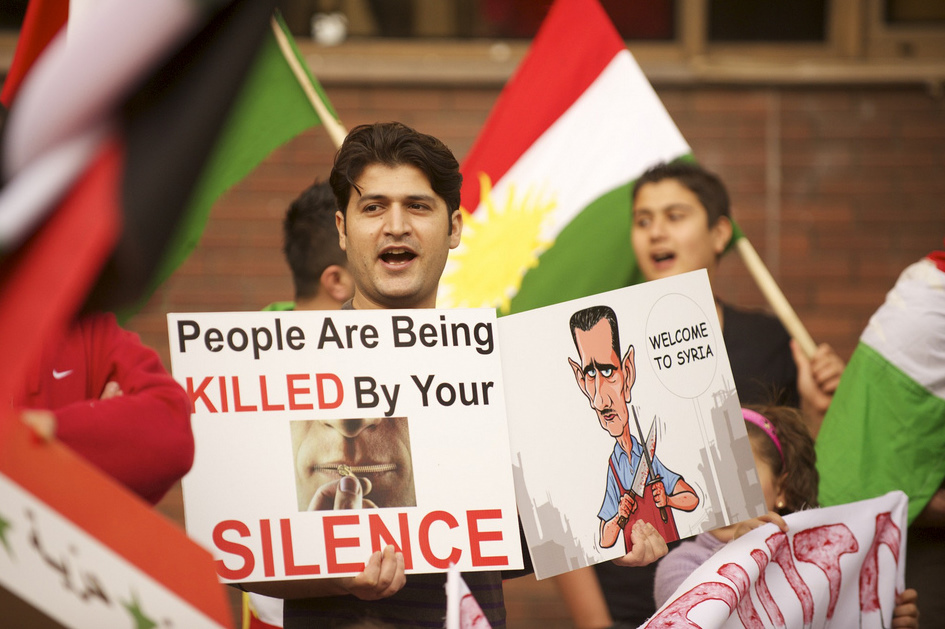Following Russia’s invasion of Crimea, Ukraine has received worldwide attention.
Currently, the U.S. is trying to impose sanctions on Russia and is also trying to get the EU on board.
Europe in reluctant to join with the West because so much of Europe, especially England, relies on Russian exports of natural gas. Europe imports 30% of Russian natural gas.
In the short term, the U.S. imposing sanctions on things such as visa bans will not stop Russia from trying to claim Crimea.
Kelly Erikson, a professor in the Politics and Government department, is not optimistic about the effectiveness of sanctions against Russia.
“The academic literature on sanctions shows it to be not all that effective. Depending upon how you code success it ranges between 5-30%, and the high end is usually against democracies. In general success rates against authoritarian regimes are on the low end,” Erikson said.
“The political will to enact the harshest of sanctions is unlikely to exist. Europe freezing the financial assets would have bad effects on their own economies. So unless the Europeans are willing to suffer a fair amount themselves, they are unlikely to enact the sanctions that would really hit Russia the hardest. So bottom line, Russia is vulnerable to sanctions, but the political will to impose them is problematic because of the potential economic blowback effects on Europe.”
Without the EU, the U.S. can not cause enough damage to make Russia even consider stopping the invasion.
Although the right thing to do may seem to be to interfere and stop Russia, since the international system is so interconnected, it would not be in Europe’s interest to intervene.
“Washington is preparing potential sanctions that could freeze the overseas assets of Russian individuals and companies and impose travel bans on some Russian officials. But for many of the measures to really bite, Obama needs to get key European allies on board, some of whom appear reluctant to take too hard a line on Russia,” CNN reported.
Not allowing Russian citizens into the country does not seem like a harsh punishment at all.
Despite this, the United States is still very adamant on getting Russia out of the Ukraine.
“The United States is demanding that Moscow scale back its deployment of troops in Ukraine’s southern region of Crimea. But Russian President Vladimir Putin so far appears unfazed by the pressure. By Russia’s account, its soldiers are protecting the human rights of worried, vulnerable Russian speakers. But in the U.S. view, Russia is violating international law,” CNN reported.
Despite the belief that sanctions will not work in the short term to get Putin out of Russia, in the long term the U.S. is currently working on making the oil and natural gas produced in the U.S. more available to international markets.
A lot of Russian GDP is based on their exports of oil.
If the U.S. became a leading supplier of oil and natural gas, countries, such as England, could be less reliant on Russia and more in favor of the U.S.
Also, the U.S. could have Russia removed from the G-8, if the other countries agreed which could have a negative effect on Russia.
“Russia could be vulnerable to sanctions. Its oligarchs send their money and their children abroad and are heavily invested in real estate, especially in the UK. So targeted freezing of accounts, revocation of visas, etc can hurt Russian elites. Russia also depends upon exports of energy for the large part of its revenue,” Erikson said.
Therefore, there are long term sanctions that could potentially harm Russia but none of this can be achieved in a quick fashion.
“The US possesses a wealth of natural gas, and with building up ports in Europe we could supply Europe with what they need, but that infrastructure would take probably five years to build out assuming regulatory approval in all the countries involved,” Erikson said.
While the future is unknown, one thing that most social scientists are sure of is Russia has no real reason to stop the invasion and as of now, the future looks frustrating for the U.S. and victorious for Russia.


